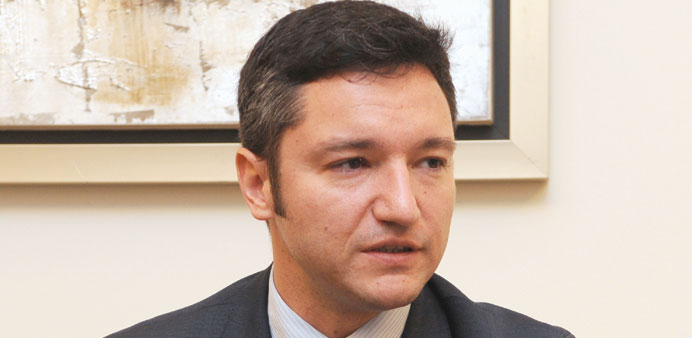By Salman Siddiqui/Staff Reporter
There are already around 10,000 Syrian refugees in Bulgaria and if we take more, our country will have difficulty creating normal living conditions for them, Bulgarian Foreign Minister Kristian Vigenin said.
In an interview with Gulf Times recently, Vigenin spoke about the impact of arrival of Syrian refugees in his country and insisted that contrary to media reports that say their condition was deplorable in Bulgaria, the situation for refugees was improving day-by-day.
“We were simply not prepared for the influx of refugees into our country. There are now around 10,000 refugees, which is not that much in comparison to the hundreds of thousands in Jordan, Lebanon or Iraq. But for us this was a new phenomenon.
Not just financially, but psychologically as well it was a great shock for our population and the government,” he said,
Bulgaria controlled the situation by increasing its co-operation with Turkey on this particular issue since most refugees came from its shared border areas.
The foreign minister said that while the conditions for refugees improve in Bulgaria, he called on concentrating on creating better conditions for them in neighbouring countries from where the immigrants come.
“We would like to see this process under control because even if we accept more refugees, we will have difficulty in creating normal living conditions for them. Best would be to join hands in building better conditions for them in countries neighbouring Syria and within our limited resources we donate money for them. It is not because we don’t want to see more of them in Bulgaria but because this creates better opportunities for them because once the war is over, it would be easier for them to return to their country,” he said.
He stressed on the need for a comprehensive European policy towards the refugees. He also highlighted the fact this was not particularly about Syrian refugees, since the largest number of people who cross the border into Bulgaria are not from Syria, but from all over the region.
Regarding charges that Hezbollah was involved in a bomb attack in Bulgaria that killed Israeli tourists a few years ago, he said following an investigation, the European Union had added the military wing of Hezbollah to its terrorist black list. But at the same time, the EU said that it would continue its support for Lebanon and would continue its political dialogue with all parties, which means they have not closed their contacts with the political wing of Hezbollah.

